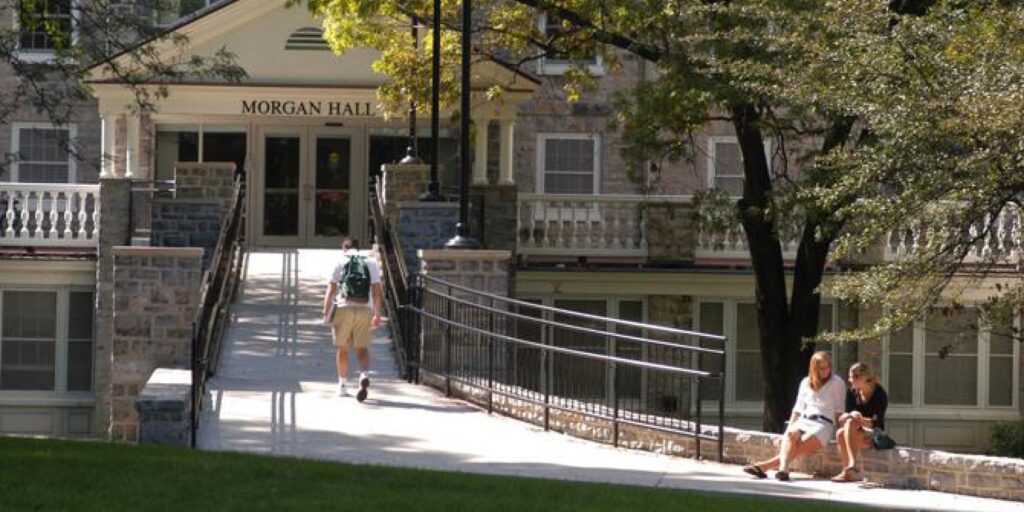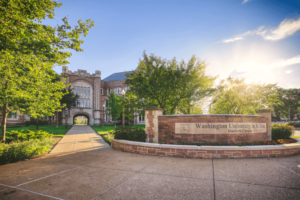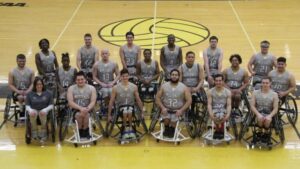
How Colleges Can Support Students with Disabilities
By Cheryl Alkon | Wednesday, June 29, 2022
5 Second Summary
Read more personal stories from members of the neuromuscular community about their College Experience as they share their journey, accomplishments, advice for accommodations and overcoming barriers, and insights into navigating college life with a disability.
Heading to college in the fall? Take time now to get to know your college’s disability services office to ensure you have what you’ll need to live comfortably, get around campus, and succeed academically.
Every college is required by law to have an individual or an office that ensures students with disabilities have equal access to education and are protected from discrimination. They go by various names at different schools, so search your college’s website for words like disability, access, equity, or accommodations to find the appropriate office. Students generally need to register with this office to request accommodations.
Get the support you need
College disability services offices can help implement accommodations for mobility, housing, dietary, and academic needs. They may work with other departments, such as residence life if you are seeking accommodations for on-campus living, for example.
“Accommodations are individualized and intended to minimize the impact a disability has on an individual’s performance in an educational setting,” says Pam Ekstrom, director of Disability Services for Southwest Minnesota State University (SMSU) in Marshall, Minnesota. “Academic accommodations must be reasonable and appropriate, and must provide meaningful access to the university’s academic programs for students with disabilities.” Accommodations are approved on a case-by-case basis depending on the student’s needs.
Academic accommodations commonly requested by students with physical disabilities include:
- Note-taking support
- Recorded lectures
- Extended time on exams
- Seating considerations within a classroom or lab setting
Accommodations in dormitories or dining halls may include:
- Elevator access
- Proximity to an accessible bathroom
- Removing or rearranging furniture
- Allowing a service animal

Worcester Polytechnic Institute (WPI) in Massachusetts
Physical access on campus is important, too. At Dickinson College in Carlisle, Pennsylvania, professors are asked to include a physical accessibility statement on their class syllabi. If a class location is known to be a barrier for a student with a disability, “those classes are relocated before the start of the semester,” says Marni Jones, dean and director of Access and Disability Services and the office of Strategies, Organization, and Achievement Resources (SOAR) at Dickinson. This proactive approach is especially important on a historic campus like Dickinson’s, which has buildings dating back to the 1800s. “Many have required renovations over the years to improve their physical accessibility, and not every building is fully accessible,” she explains.
Disability services offices also can arrange other services and supports to ease barriers and contribute to academic success. At Dickinson, the Access and Disability Services office provides all students with access to text-to-speech and dictation software. At Worcester Polytechnic Institute (WPI) in Massachusetts, Office of Accessible Services team members provide academic coaching to boost organization, time management, and self-advocacy skills.
Be proactive
While accommodations can be implemented at any time, Amy Curran, director of the Office of Accessibility Services at WPI, encourages students to reach out to their office before the term starts. Reaching out well in advance of the academic year will ensure that things are in place as early as possible.
“We are a warm and welcoming office that embraces student outreach,” Amy says. “Starting the conversation with us to discuss documentation and ask questions about campus accommodations is key.”
When approaching your school’s office of disability services, find out what they need from you in terms of documentation that explains your disability; how your disability impacts your participation in courses, academic programs, activities, campus employment, and so on; and what accommodations are recommended for your disability.
Marni at Dickinson echoes the importance of starting the process early to ensure that the office receives and reviews all necessary documentation in time to have accommodations in place when the school year starts. This is especially important for students who are concerned about physical accessibility barriers or need housing accommodations. “Visit campus early, and practice getting to classes, the mailroom, the dining hall, etc.,” she advises.

Washington University in St. Louis, Missouri
Be sure you understand what accommodations are available at your school, and don’t be afraid to ask questions. Nationally, 19% of all undergraduate students report having a disability, according to the Institute of Education Science’s National Center for Education Statistics. That means there are millions of college students with disabilities every year. Your school’s disability services office might be able to connect you with current or former students with similar disabilities who can share their knowledge and perspectives.
Addressing problems
Unexpected access barriers can happen, such as an icy wheelchair ramp or out-of-service elevator. In such cases, contacting the staff of the affected building, the school’s facilities department, or the campus police might be the most efficient way to address the situation immediately.
“The options for a student who encounters an access barrier really depend on the nature of the barrier,” says Chris Stone, EdD, director of Disability Resources at Washington University in St. Louis, Missouri. “Students are always able to notify Disability Resources, but that isn’t always the quickest route to finding resolution.”
Dr. Stone and other school administrators encourage students to speak up when they encounter an access barrier. “Accessibility is a responsibility shared by the entire campus community,” he says.
If you ever feel you are discriminated against because of your disability, the disability services office can tell you how your school handles such claims. “As advocates for disabled students, our office can help navigate the situation or guide students to the pathway to seek recourse,” Dr. Stone says.
Creating inclusive campuses

Wheelchair Basketball Team at Southwest Minnesota State University (SMSU)
Many college disability services offices take steps to actively help students with disabilities fully participate in campus life. For example, Dickinson developed an Inclusive Events Guide to help organizers make on-campus events accessible to a wide array of participants. Some schools offer adaptive sports. SMSU offers free physical therapy and inclusive fitness training. Many schools have clubs or affinity groups that help students with disabilities connect with one another.
For college success, reach out to your disability services office early and often. Think of them as an ally that helps all students with disabilities get the most out of their college experiences.
Next Steps and Useful Resources
- To find a good college match, assess campus accessibility and inclusiveness.
- Take the Access to Education: Higher Education free online workshop from MDA to learn about choosing a school, preparing financially, and advocating for accessibility and accommodations in housing, around campus, and in the classroom.
- Learn what the Americans with Disabilities Act requires from public and private colleges and universities.
- Visit the National Center for College Students with Disabilities, a resource for college and graduate students with any type of disability, chronic health condition, or mental or emotional illness
- Wondering how you’ll afford college? Read Navigating College Scholarships and Financial Assistance with a Disability.
Disclaimer: No content on this site should ever be used as a substitute for direct medical advice from your doctor or other qualified clinician.




